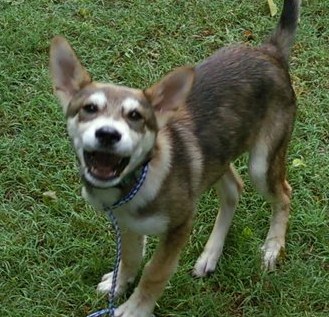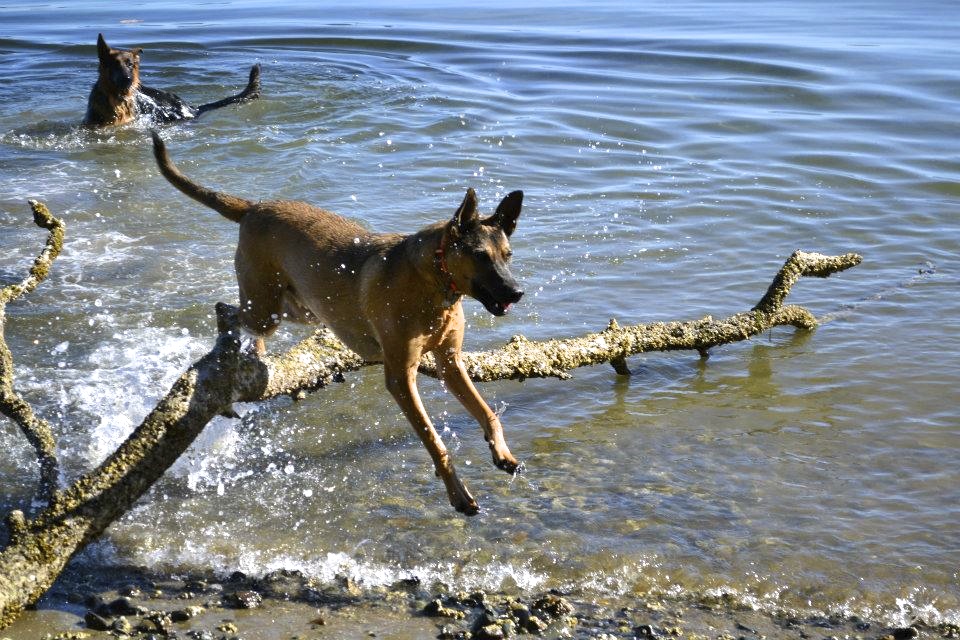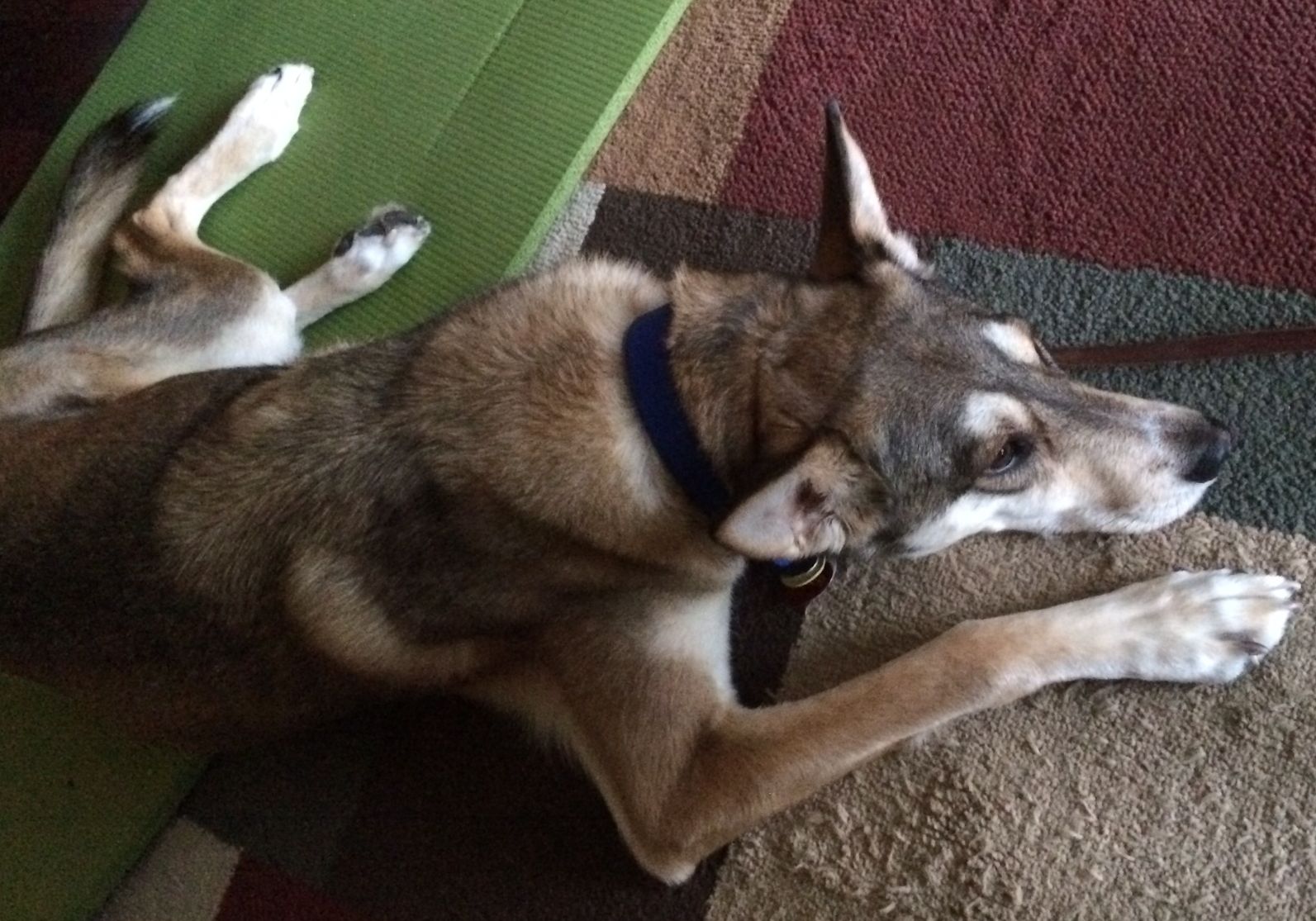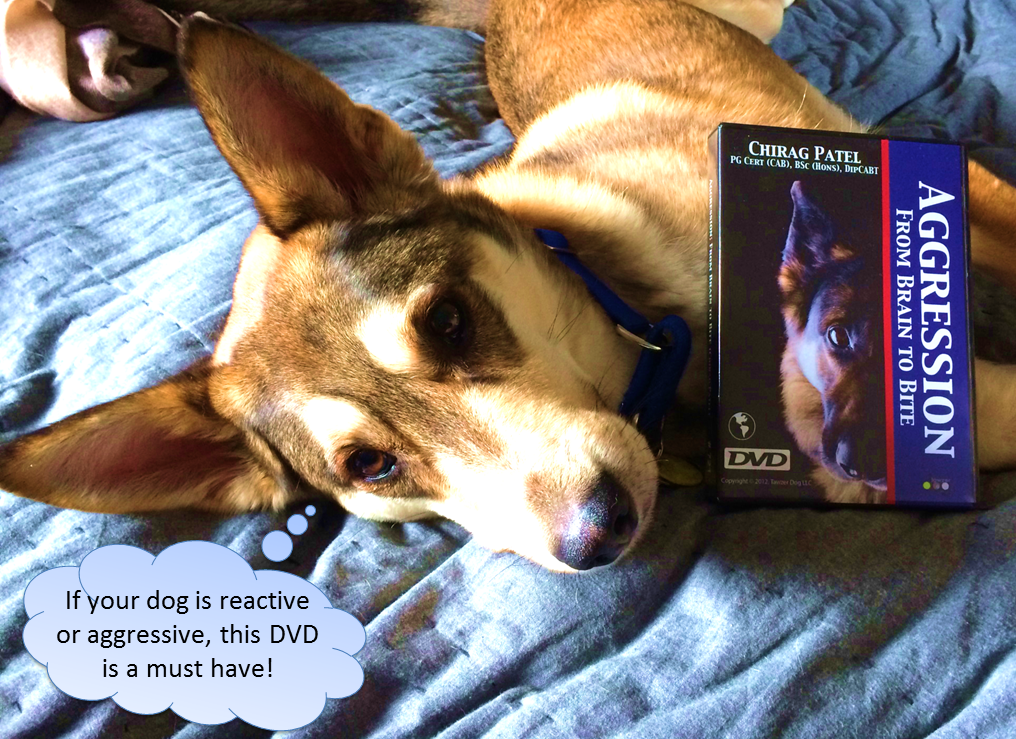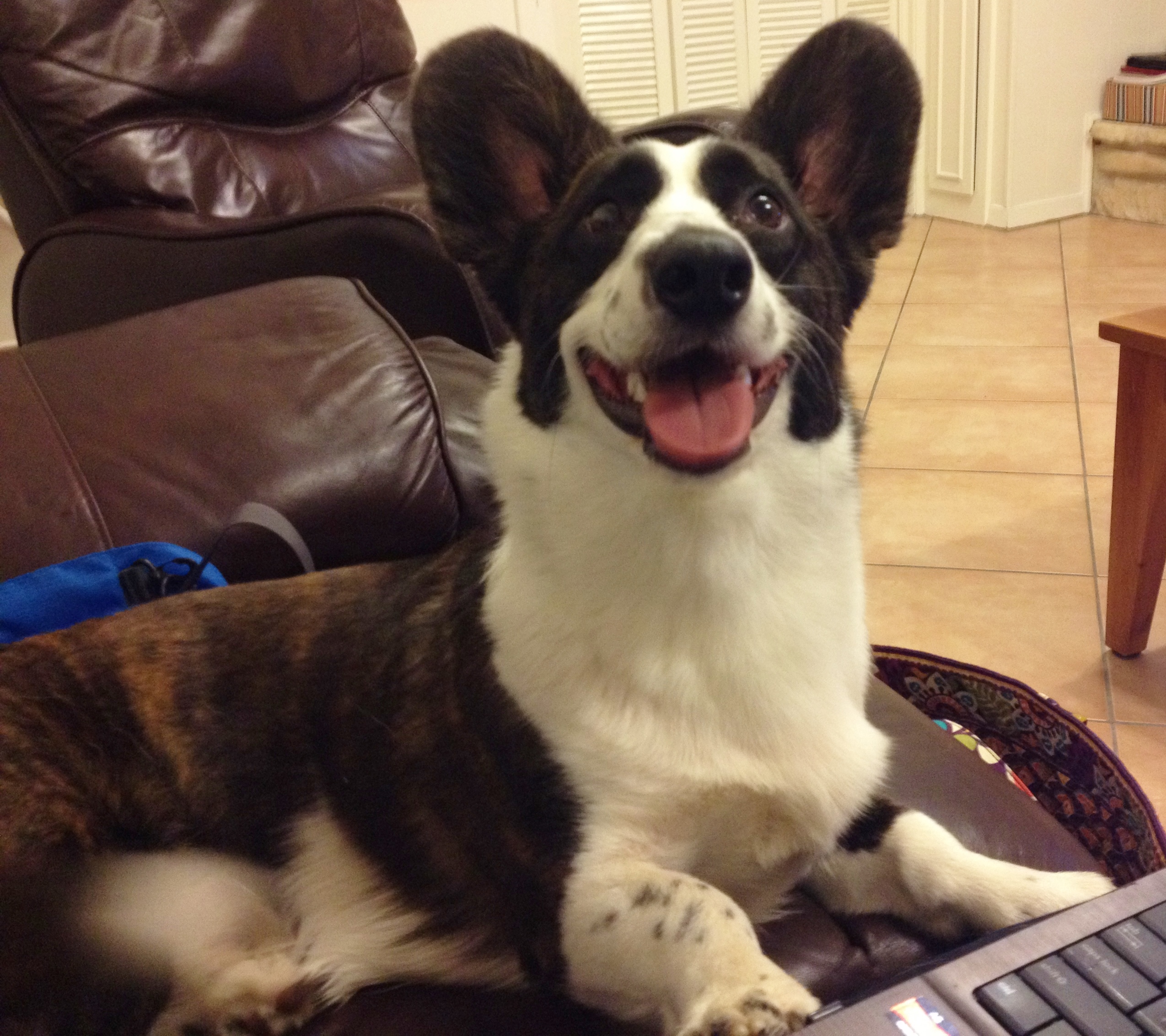Over the past year, I’ve been working really hard to change my dog’s behavior towards other dogs, but I feel I’ve made little progress. He has mastered his obedience skills, but he still can barely control himself at the site of another dog and he will react if the other dog is anything but calm and quiet. These last few weeks I’ve dug deep to really analyze where I’ve messed up. I feel that his inability to progress is, for the most part, a reflection of my thoughts and actions. I’m experiencing a new period of growth in my training skills and awareness and it’s a little overwhelming.
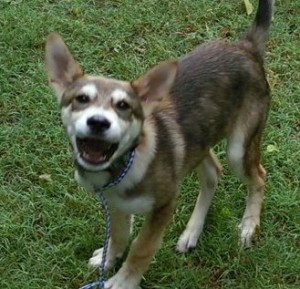 The event that led me to doubt my progress was observing my dog react to another reactive dog. Loker was listening to me, trying to do what he thought I wanted, and yet he was barking in the process because he simply couldn’t contain himself. It was a confusing sight for me and probably him, too. Here is my dog heeling next to my side, giving me eye contact, and lying down, but barking through the whole process. This made a light bulb go off in my head. He’s trying to please me, he’s being “obedient,” but he’s not relaxed or calm. Thankfully, I had just purchased a new DVD by Emily Larlham called “Reactivity: A Program for Rehabilitation.”
The event that led me to doubt my progress was observing my dog react to another reactive dog. Loker was listening to me, trying to do what he thought I wanted, and yet he was barking in the process because he simply couldn’t contain himself. It was a confusing sight for me and probably him, too. Here is my dog heeling next to my side, giving me eye contact, and lying down, but barking through the whole process. This made a light bulb go off in my head. He’s trying to please me, he’s being “obedient,” but he’s not relaxed or calm. Thankfully, I had just purchased a new DVD by Emily Larlham called “Reactivity: A Program for Rehabilitation.”
In this DVD, she goes over what she has done for her own dogs as well as her client’s dogs. The material was not “new” but it was presented in a way that I saw more details and explanations about the process than I had seen before. Prevention of reactions was the #1 key point in the DVD and it is something I do already. The other key points were relaxation and “let’s go” cues. I found myself realizing that I hadn’t spent as much time as I should have on these two skills. Furthermore, another light bulb went off when I realized the predictor of rewards was not what I thought it was since my dog is always thinking about food. (In case you’re interested, check out her DVD here: http://www.tawzerdog.com/reactivity-a-program-for-rehabilitation.html.)
Other than the fact that many reactive dogs don’t know how to relax, counter conditioning has to be implemented correctly to work. If you’ve seen very little progress with your training over a long period of time, you should always re-evaluate your process and make some changes. With my own dog, I haven’t been able to associate my dog’s trigger with proper rewards. My dog is highly food motivated and is probably always thinking about food. In order to counter conditioning to work, I need him to be thinking about the trigger – not the food. Emily Larlham’s DVD helped me come to that realization. Check out this awesome video where she explains this training challenge:
